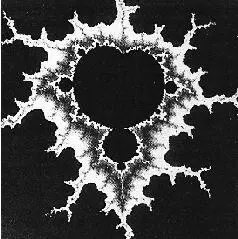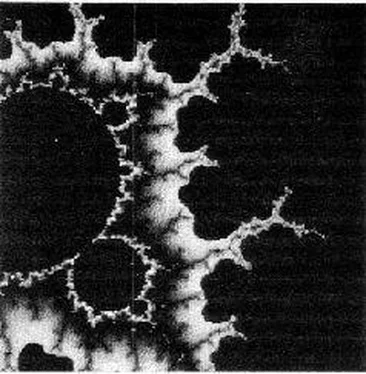“Edith’s prime orientation isn’t toward men—and Dolores actively disliked them, though she was sometimes kind enough to make an exception in my case…
“She was able to contact Edith on the physical level even before we connected on the mental one. They will be very good for each other. But I’ll miss her, dammit.”
Donald Craig was speechless for a moment. Then he blurted out: “You mean—they were having an affair? And you knew it?”
“Of course I did; my job as a physician is to help my patients in any way I can. You’re an intelligent man, Mr. Craig—I’m surprised that seems to shock you.”
“Surely it’s… unprofessional conduct!”
“What nonsense! Just the reverse—it’s highly professional. Oh, back in the barbarous twentieth century many people would have agreed with you. Can you believe it was a crime in those days for the staff of institutions to have any kind of sex with patients under their care, even though that would often have been the best possible therapy for them?
“One good thing did come out of the AIDS epidemic—it forced people to be honest: it wiped out the last remnants of the Puritan aberration. My Hindu colleagues—with their temple prostitutes and erotic sculpture—had the right idea all the time. Too bad it took the West three thousand years of misery to catch up with them.”
Dr. Jafferjee paused for breath, giving Donald Craig time to marshal his own thoughts. He could not help feeling that the doctor had lost some of his professional detachment. Had he been erotically interested in the inaccessible Nurse Dolores? Or did he have deeper problems?
But, of course, everyone knew just why people became psychiatrists in the first place…
With luck, you could cure yourself. And even if you failed, the work was interesting—and the pay was excellent.

Jason Bradley was on the bridge of Glomar Explorer , monitoring J.J.’s progress on the seabed, when he felt the sudden sharp hammerblow. The two electronics technicians watching the displays never even noticed; they probably thought it was some change in the incessant rhythm of the ship’s machinery. Yet for a chilling instant Jason was reminded of a moment almost a century ago, equally unnoticed by most of the passengers…
But, of course, Explorer was at anchor (in four kilometers of water, and how that would have astonished Captain Smith!) and no iceberg could possibly creep undetected through her radar. Nor, at drifting speed, would it do much worse than scrape off a little paint.
Before Jason could even call the communications center, a red star began to flash on the satfax screen. In addition, a piercing audio alarm, guaranteed to set teeth on edge as it warbled up and down through a kilocycle range, sounded on the unit’s seldom-used speaker. Jason punched the audio cutoff, and concentrated on the message. Even the two landlubbers beside him now realized that something was wrong.
“What is it?” one of them asked anxiously.
“Earthquake—and a big one. Must have been close.”
“Any danger?”
“Not to us. I wonder where the epicenter is…”
Bradley had to wait a few minutes for the seismograph-computer networks to do their calculations. Then a message appeared on the fax screen:
SUBSEA EARTHQUAKE ESTIMATED RICHTER 7
EPICENTER APPROX 55 W 44 N.
ALERT ALL ISLANDS AND COASTAL AREAS NORTH ATLANTIC
Nothing else happened for a few seconds; then another line appeared:
CORRECTION: UPDATE TO RICHTER 8
Four kilometers below, J.J. was patiently and efficiently going about its business, gliding over the seabed at an altitude of ten meters and a speed of a comfortable eight knots. (Some nautical traditions refused to die; knots and fathoms still survived into the metric age.) Its navigation program had been set so that it scanned overlapping swaths, like a plowman driving back and forth across a field being prepared for the next harvest.
The first shock wave bothered J.J. no more than it had the Explorer. Even the two nuclear submarines had been completely unaffected; they had been designed to withstand far worse—though their commanders had spent a few anxious seconds speculating about depth charges.
J.J. continued its automatic quest, collecting and recording megabytes of information every second. Ninety-nine percent of this would never be of the slightest interest to anyone—and it might be centuries before scientific gold was found in the residue.
To eye or video camera, the seabed here appeared almost completely featureless, but it had been chosen with care. The original “debris field” around the severed stern section had long ago been cleared of all interesting items; even the lumps of coal spilled from the bunkers had been salvaged and made into souvenirs. However, only two years ago a magnetometer search had revealed anomalies near the bow which might be worth investigating. J.J. was just the entity for the job; in another few hours it would have completed the survey, and would return to its floating base.
“It looks like 1929 all over again,” said Bradley.
Back in the ISA lab, Dr. Zwicker shook his head.
“No—much worse, I’m afraid.”
In Tokyo, at another node of the hastily arranged conference, Kato asked: “What happened in 1929?”
“The Grand Banks earthquake. It triggered a turbidity current—call it an underwater avalanche. Snapped the telegraph cables one after the other, like cotton, as it raced across the seabed. That’s how its speed was calculated—sixty kilometers an hour. Perhaps more.”
“Then it could reach us in—my God—three or four hours. What’s the likelihood of damage?”
“Impossible to say at this stage. Best case—very little. The 1929 quake didn’t touch Titanic , though many people thought she’d been buried; luckily, it was a couple of hundred kilometers to the west. Most of the sediment was diverted into a canyon, and missed the wreck completely.”
“Excuse me,” interrupted Rupert Parkinson, from his London office. “We’ve just heard that one of our flotation modules has surfaced. Jumped twenty meters out of the water. And we’ve lost telemetry to the wreck. How about you, Kato?”
Kato hesitated only a moment; then he called out something in Japanese to an associate off-screen.
“I’ll check with Peter and Maury. Dr. Zwicker—what’s your worst-case analysis?”
“Our first quick look suggests a few meters of sediment. We’ll have a better computer modeling within the hour.”
“A meter wouldn’t be too bad.”
“It could wreck our schedule, dammit.”
“A report from Maury, gentlemen,” said Kato. “No problem—everything normal.”
“But for how long? If that… avalanche… really is racing toward us, we should pull up whatever equipment we can. What do you advise, Dr. Zwicker?”
The scientist was just about to speak when Bradley whispered urgently in his ear. Zwicker looked startled, then glum—then nodded in reluctant agreement.
“I don’t think I should say any more, gentlemen. Mr. Bradley is more experienced in this area than I am. Before I give any specific advice, I should consult our legal department.”
There was a shocked silence; then Rupert Parkinson said quickly: “We’re all men of the world; we can understand that ISA doesn’t want to get involved in lawsuits. So let’s not waste time. We’re pulling up what we can. And I advise you to do the same, Kato—just in case Dr. Zwicker’s worst case is merely the bad one.”
Читать дальше












